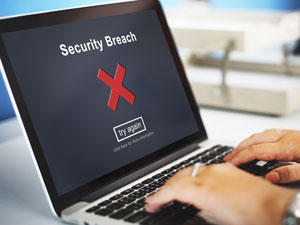Taxpayers Encouraged to Supply Driver’s License Number…But Should They?
Home Help Center Taxpayers Encouraged to Supply Driver’s License Number…But Should They?
New changes to how tax preparers in key states operate may mean turning over your driver’s license at the time of filing, which might seem like a good idea. On the surface, it’s just another layer of protection for you as a taxpayer, right?

Whether it’s “inside job” attacks or accidental data breaches, any submitted information can be put at risk. That means CPAs and tax prep services have to go to great lengths to secure all of the information they gather. They’re trained—and expected—to safeguard things like your Social Security number, but with different states requiring different forms of identification, they may not all be prepared to treat your driver’s license number with the same level of care.
There’s also the matter of data breach notification. Different states have different laws about when an organization is required to contact you about a breach. For most states, a driver’s license number is considered highly sensitive, protected information, and therefore if it falls into the wrong hands you should be notified. However, not all states have the same requirements or the same stringent policies on timeliness.
One of the most alarming aspects to using a driver’s license number in this way is the public’s own perception about its importance. One survey found that citizens tend to be very protective of their Social Security cards, but when it comes to a lost or stolen driver’s license, it’s seen as more of an inconvenience than a cause for concern.
As citizens, we must be proactive about safeguarding our data and monitoring what happens to it. It’s not good enough to say, “Well, it’s probably already been stolen over the years, the damage has been done.” While it’s true that literally millions of Americans have had their information accessed by an unauthorized person over the years, that doesn’t mean you should wash your hands of your own safety. Ask the tough questions about how your information will be stored and who will be able to see it, and if you don’t get solid answers that you can trust, think twice about handing it over.
If you think you may be a victim of identity theft, contact the Identity Theft Resource Center for toll-free, no-cost assistance at (888) 400-5530. For on-the-go assistance, check out the free ID Theft Help App.
How much information are you putting out there? It’s probably too much. To help you stop sharing Too Much Information, sign up for the In the Loop.
Get ID Theft News
Stay informed with alerts, newsletters, and notifications from the Identity Theft Resource Center

